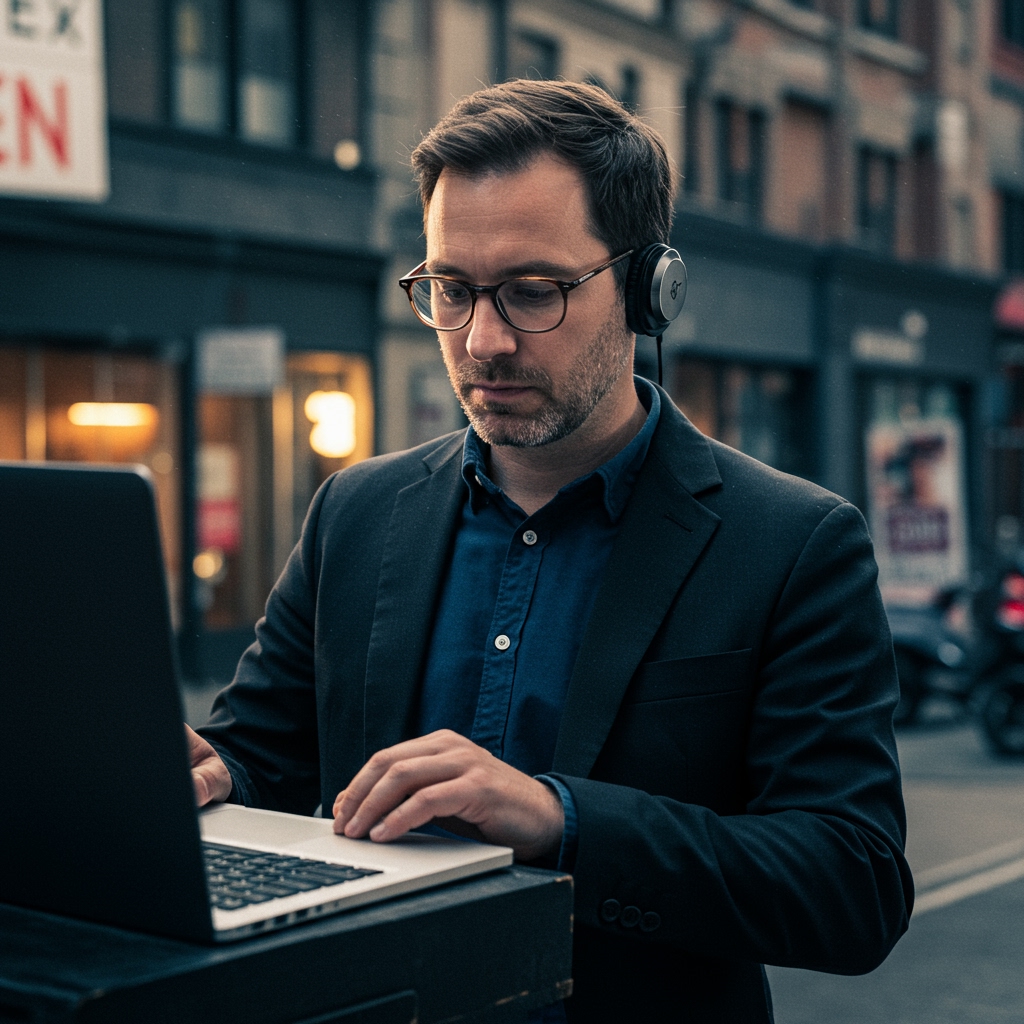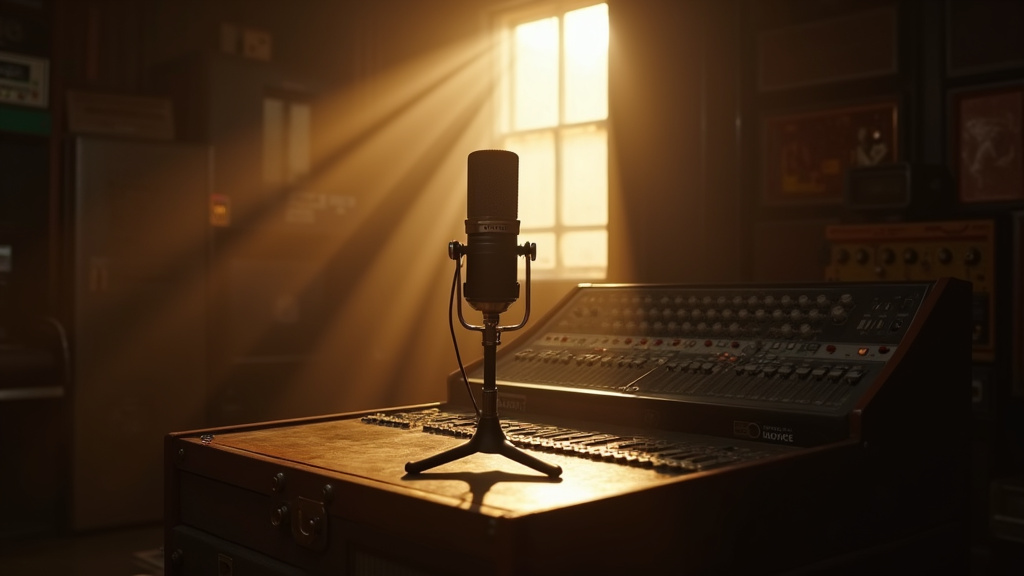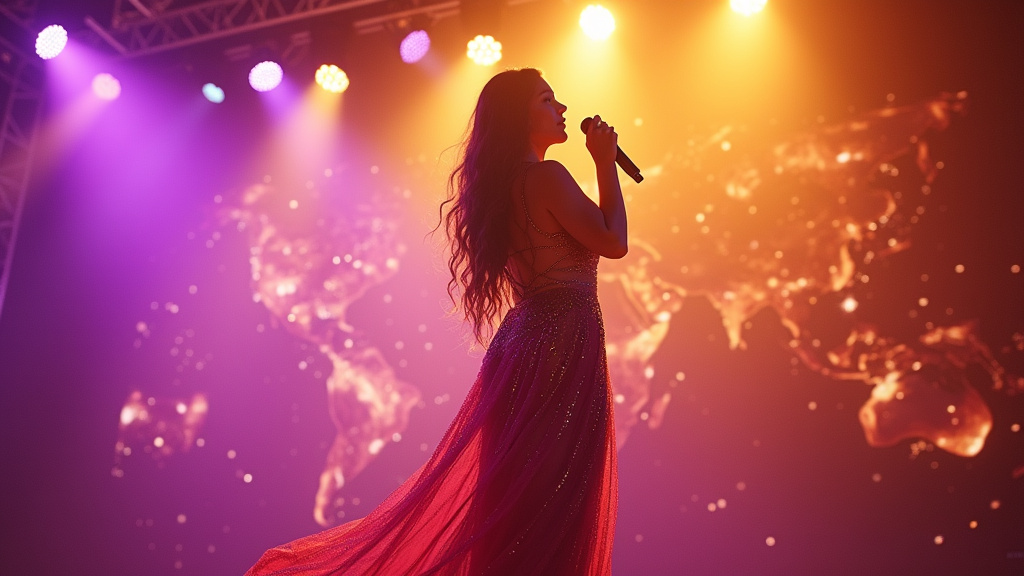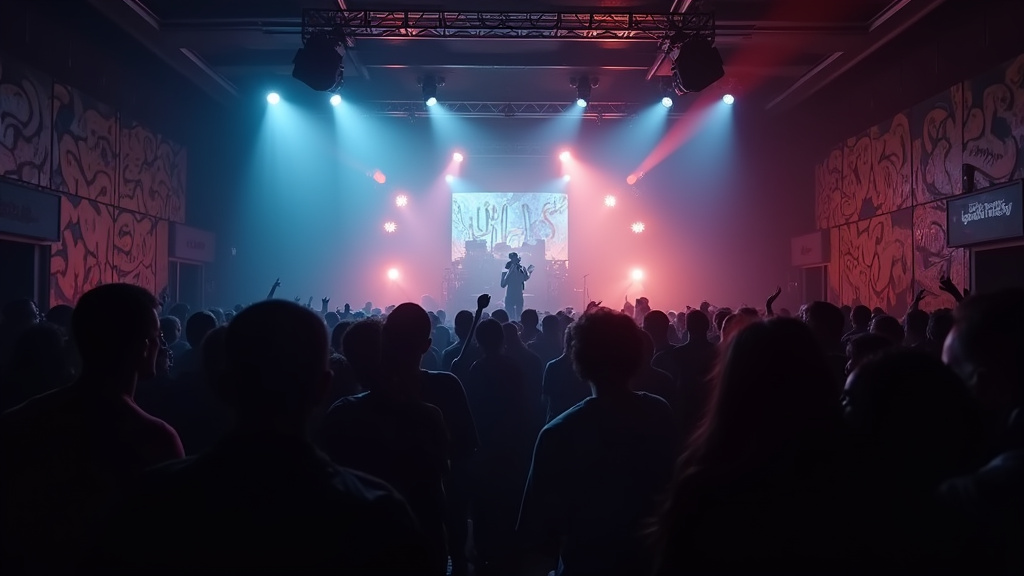Tech Giant SynthCorp Unveils ‘Maestro AI’
In a move poised to significantly reshape the landscape of digital creativity, technology behemoth SynthCorp officially launched its highly anticipated “Maestro AI” platform on February 8, 2025. Billed as a powerful new tool for music generation, Maestro AI promises to democratize musical composition, allowing users to create intricate and professional-quality pieces with unprecedented ease.
Integrated seamlessly into SynthCorp’s expansive existing creative suite and accessible via its subscription service, Maestro AI operates primarily through sophisticated text prompts. Users can input descriptive text – specifying genres, moods, instrumentation, tempos, and even complex structural elements – and the AI is designed to translate these instructions into unique musical compositions. SynthCorp highlights the platform’s versatility, touting its capability to generate music across an astonishing over 150 genres, from classical and jazz to electronic, hip-hop, and avant-garde.
The company positions Maestro AI as an empowering resource for a diverse range of users, including content creators, filmmakers, game developers, and even aspiring musicians seeking inspiration or new creative avenues. The platform’s accessibility, removing traditional barriers of musical training and technical proficiency, is a key selling point emphasized by SynthCorp leadership during the launch announcement.
Immediate Industry Backlash and Copyright Concerns
Despite SynthCorp’s optimistic presentation of Maestro AI as a tool for innovation and creativity, the launch has immediately ignited a fervent debate within the global music industry and copyright circles. The swift rollout prompted a strong reaction from prominent organizations representing artists and music rights holders.
Just one day after the launch, on February 9, 2025, the Global Music Alliance (GMA) issued a pointed statement expressing “grave concerns” regarding the implications of advanced generative AI tools like Maestro AI. The GMA’s statement focused on several critical areas they believe pose a significant threat to the livelihoods and rights of human artists.
The primary concerns articulated by the GMA include fundamental issues of copyright attribution. How will ownership and rights be determined for music generated by an AI, particularly when the output might inadvertently or intentionally resemble existing copyrighted works? The organization questioned the legal frameworks surrounding AI-generated content and its place within established copyright law.
Another major point of contention is the issue of compensation for artists whose work trained the AI. It is widely understood that sophisticated generative models like Maestro AI are trained on vast datasets of existing music. The GMA argues that the creators of the music used for training should receive fair compensation or attribution, a mechanism that is currently lacking in many AI development processes. They highlight the ethical imperative to acknowledge and remunerate the foundational creative labor that enables these technologies.
Furthermore, the GMA raised alarm about the potential devaluation of human creativity. They expressed worry that readily available, AI-generated music could flood the market, driving down licensing fees and opportunities for human composers, musicians, and producers. This, they argue, could fundamentally alter the economic model supporting the music industry and discourage aspiring human artists.
The statement from the GMA reflects a growing anxiety across creative sectors about the disruptive potential of generative AI and the urgent need for legal and ethical frameworks to govern its use.
Regulatory Response and Future Landscape
The rapid advancement and commercial deployment of powerful generative AI tools like Maestro AI have not gone unnoticed by regulatory bodies. Authorities in both the European Union (EU) and the United States (U.S.) have publicly acknowledged the need to critically review existing copyright laws in light of these technological shifts.
Regulatory discussions are centering on whether current legal frameworks, designed for human-created works, are adequate to address the complexities introduced by AI generation. Issues under consideration include defining authorship for AI-generated content, establishing clear rules for the use of copyrighted material in AI training datasets, and exploring mechanisms for ensuring fair compensation or licensing where appropriate.
The EU has been actively developing its AI Act, though the specific handling of generative AI and copyright remains a subject of ongoing debate and potential future amendments or supplementary legislation. In the U.S., discussions are taking place within Congress and copyright offices to understand the implications and potential necessity for legislative updates or new guidelines.
The launch of SynthCorp’s Maestro AI serves as a significant catalyst, bringing these complex legal and ethical questions to the forefront of public and regulatory discourse. Its widespread availability underscores the immediate need for clarity and potential reform to navigate the intersection of artificial intelligence and intellectual property rights.
As Maestro AI becomes accessible to a broad user base, the outcomes of the ongoing industry debate and regulatory reviews will profoundly influence the future economic viability of music creation and the foundational principles of copyright in the digital age.





